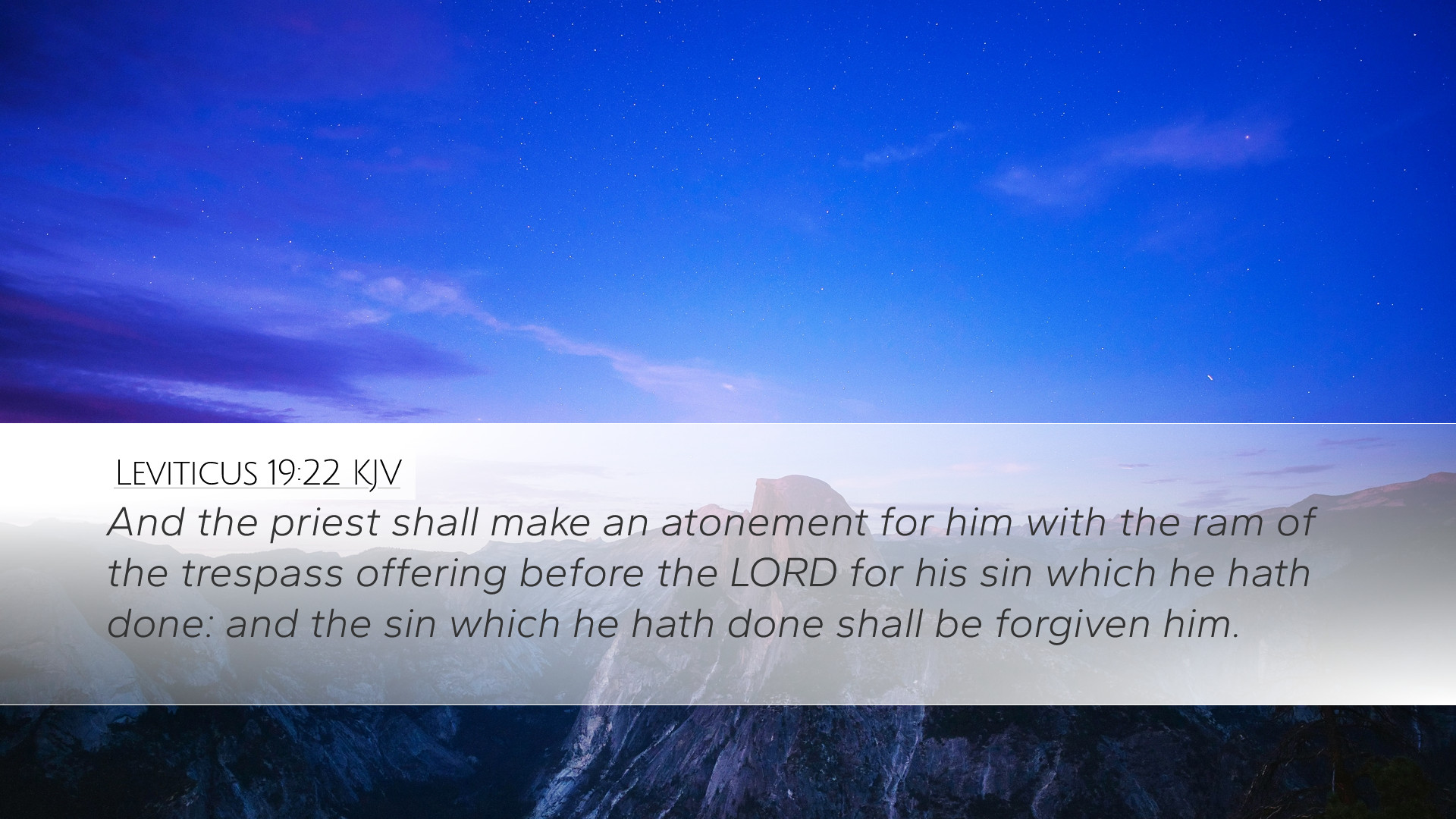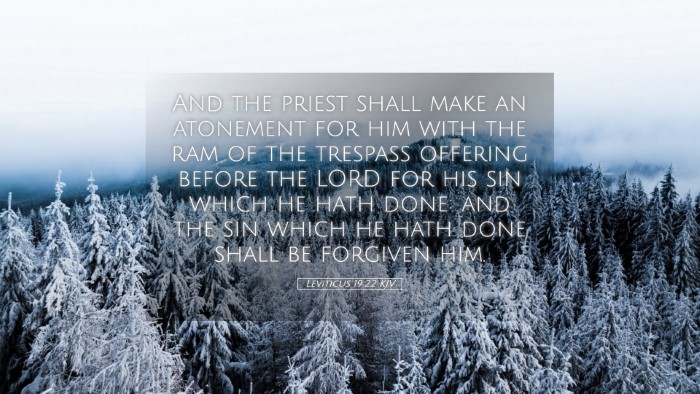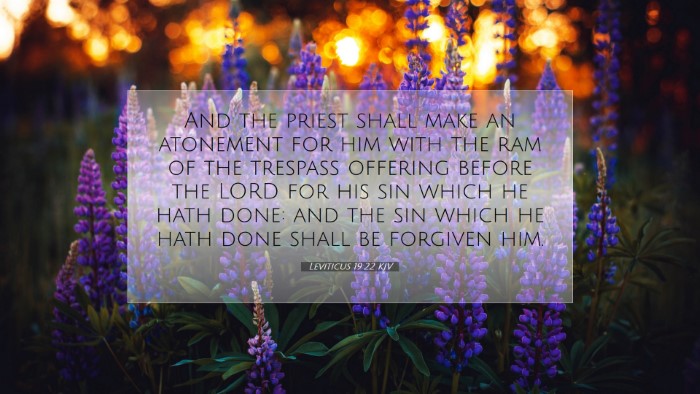Commentary on Leviticus 19:22
Leviticus 19:22 states:
“And the priest shall make atonement for him with the ram of the trespass offering before the LORD for his sin which he hath sinned: and the sin which he hath sinned shall be forgiven him.”
This verse encapsulates a rich theological understanding regarding atonement, sin, and divine forgiveness, which has been expounded upon by several renowned public domain commentaries. Below is a synthesis of their insights.
General Overview
The context of Leviticus 19 is pivotal for understanding the nature of holiness that God requires from His people. This chapter outlines various moral and ethical laws that distinguish the Israelites as a holy nation. Verses in this chapter exemplify the attributes of God and His expectations.
Exegesis of Leviticus 19:22
Matthew Henry provides a substantial commentary on the nature of sin and the role of atonement.
- Atonement in Context: Henry emphasizes that atonement is a divine provision for human shortcomings. The “ram of the trespass offering” symbolizes the seriousness of sin and the necessary steps for reconciliation with God.
- Role of the Priest: The priest’s role is crucial as a mediator. He is the one who performs the rites necessary for atonement, indicating that God has provided a system through which He meets sin with mercy.
- Forgiveness as a Promise: The assurance of forgiveness underscores God’s character. Henry notes that this is not merely a ritual but a demonstration of God’s willingness to restore the sinner when there is genuine contrition.
Theological Implications
Albert Barnes highlights the broader implications of atonement for understanding the sacrificial system in ancient Israel.
- Meaning of Trespass Offerings: Barnes points out that trespass offerings were meant to address specific sins, distinguishing them from other types of offerings that may deal with general sin or guilt. This specificity emphasizes the need for individual atonement.
- Divine Approachability: The passage shows that God is not distant from His people; rather, He has established mechanisms through which they can approach Him despite their wrongdoings. It signifies that sin does not have to be the end of relationship with God.
Liturgical and Practical Applications
Adam Clarke expands on the practical actions behind this text, particularly for pastoral care and liturgical practices.
- Application in Worship: Clarke suggests that this verse can guide how congregations approach the concept of sin in their worship settings, highlighting the necessity of acknowledgment and atonement before God.
- Pastoral Responsibility: Clarke also mentions the role of pastors in guiding congregants through their understanding of sin and the procedure for seeking forgiveness, drawing parallels with the priestly duties of the Old Testament.
- Church Understanding of Sin: He warns against a minimalist view of sin; rather, the church should embrace a comprehensive view that recognizes the depth of human failure and the corresponding depth of God's grace in atonement.
Conclusion
In summary, Leviticus 19:22 serves as a significant reminder of God's providence in the face of human failure. Through the priestly acts of atonement, there is not only a legal restoration but also a deep relational reconciliation with God. The historical, theological, and practical insights gathered from the public domain commentaries highlight this verse's relevance for contemporary believers.
This verse speaks to pastors, students, and scholars alike as it encapsulates the essence of God's mercy and the serious nature of sin, providing a framework for understanding the sacrificial system and its implications for Christian faith and practice.


